On March 20, Javaid Rehman, the UN Special Rapporteur on the human rights situation in the Islamic Republic of Iran, presented the first UN report on the deadly repression of the recent Iran protests to the Human Rights Council. Find the full report here, and the full broadcast (in two parts) of the interactive dialogue below, via UN Web TV:
In his opening remarks, Mr. Rehman made note of the cirucmstances that led to the death of Jina Mahsa Amini:
“I present to this Council available evidence including eyewitness testimonies and comments from reliable medical sources establishing that Ms. Amini died on 16 September as a result of beatings by the State morality police. As per usual practice, State authorities have characteristically denied any wrongdoing or misconduct on their part and presented the results of so-called investigations that were neither credible nor transparent and failed to meet the minimum requirements of impartiality and independence”.
The SR also underlined the scope and gravity of human rights violations committed during the ensuing protest movement:
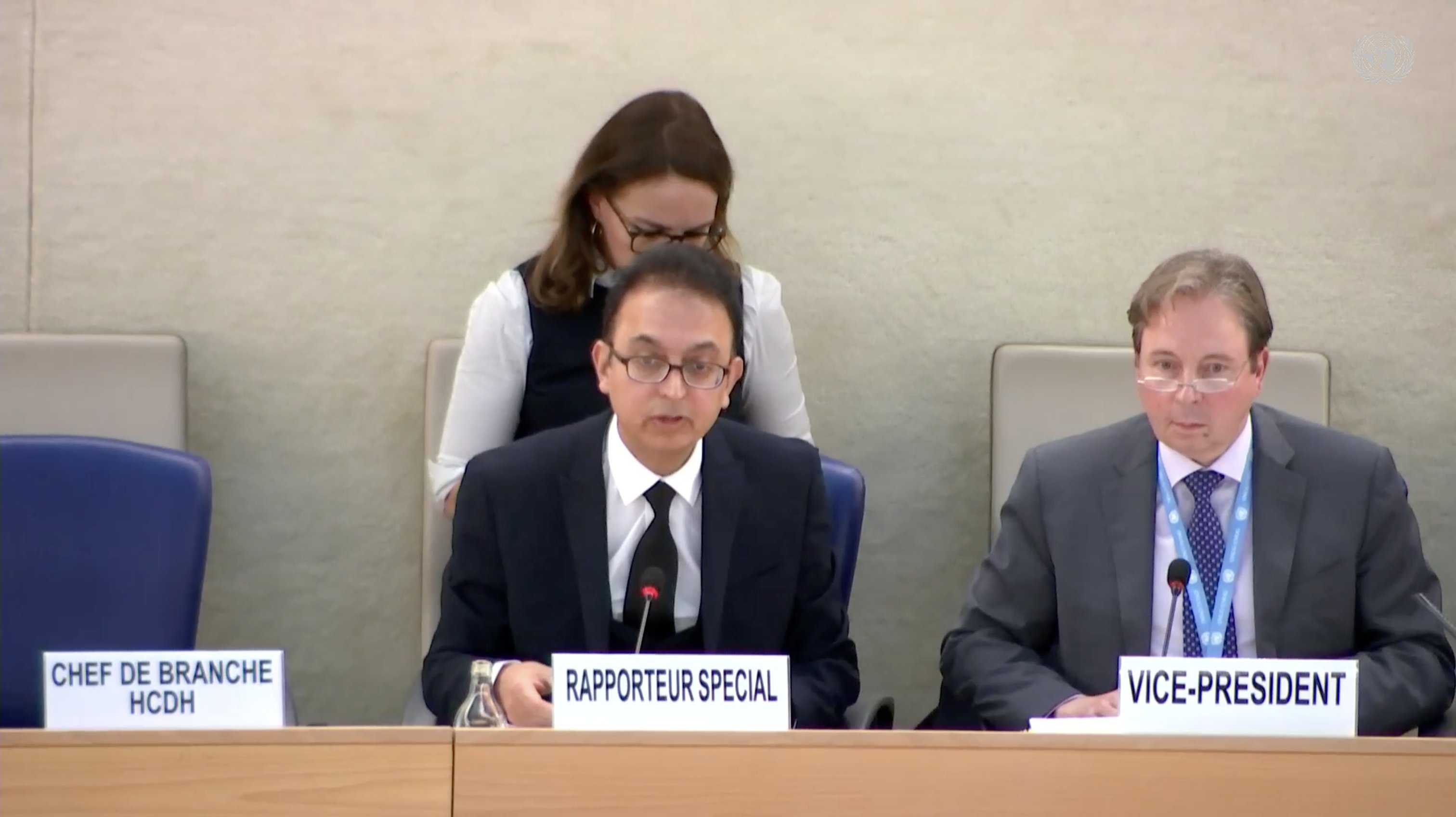
“The scale and gravity of the violations committed by Iranian authorities, especially since the death of Ms. Amini points to the possible commission of international crimes, notably the crimes against humanity of murder, imprisonment, enforced disappearances, torture, rape and sexual violence, and persecution.”
Speaking on behalf of the concerned country, The Islamic Republic’s Mr. Ali Bahreini responded to the SR’s remarks:
“Mr. Rehman, in total disregard of his duties under res. 5/2, which emphasizes the impartiality of the SRs, unfortunately plays the role of the opposition. In all his writings and statements, he uses biased language and violates code of conduct of [..] mandate holders.”
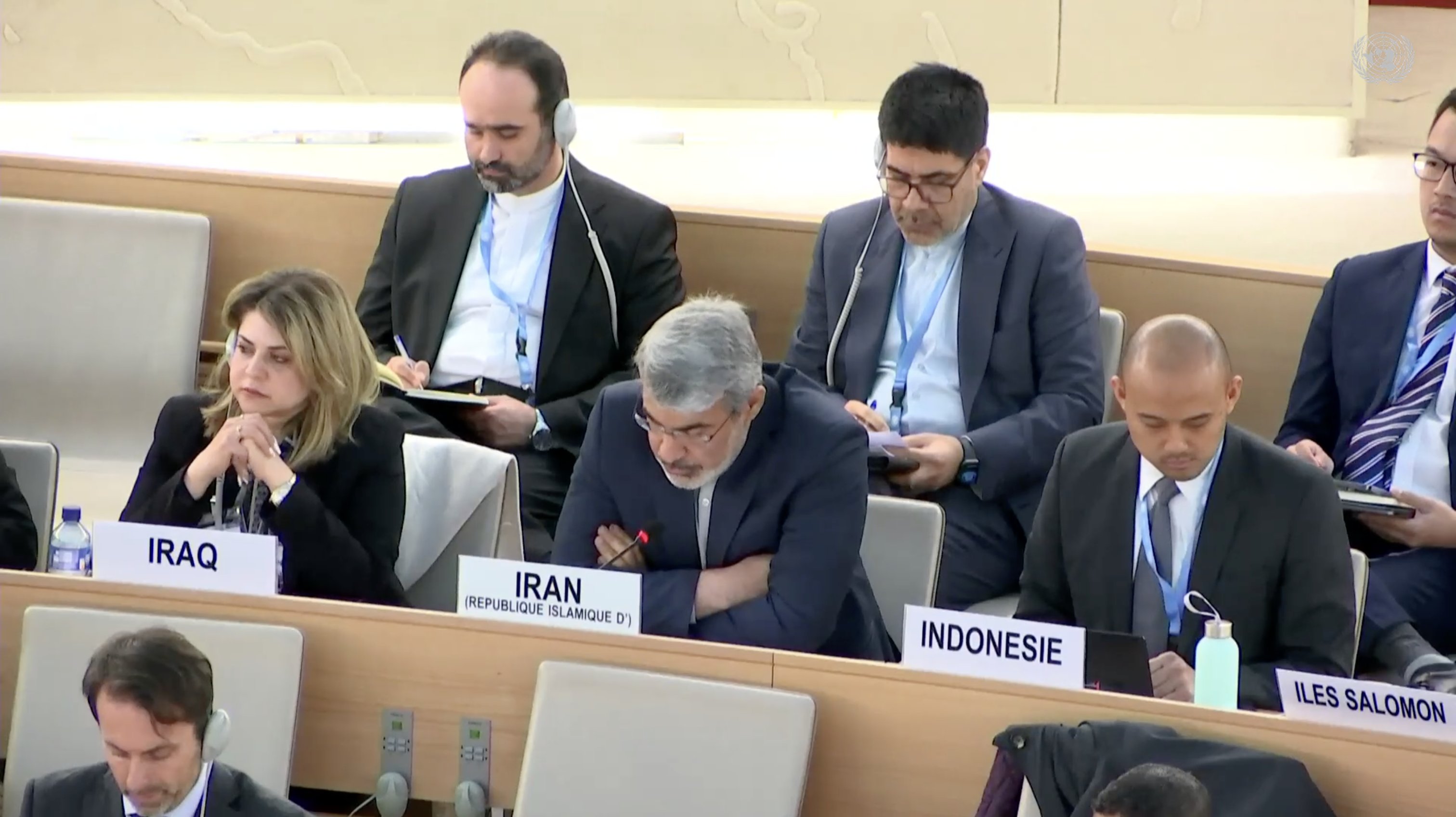
“The allegations made by Mr. Javaid Rehman in his report, which are read like a tragic novel, have been repeated by a number of Western governments and their media outlets and terrorist groups stationed in their countries in the past months. They tried to portray their imaginations as the reality of human rights situation in Iran.”
Many member states expressed concern for the deteriorating human rights situation, while several states drew attention to the possibility of the commission of international crimes:
Belgium
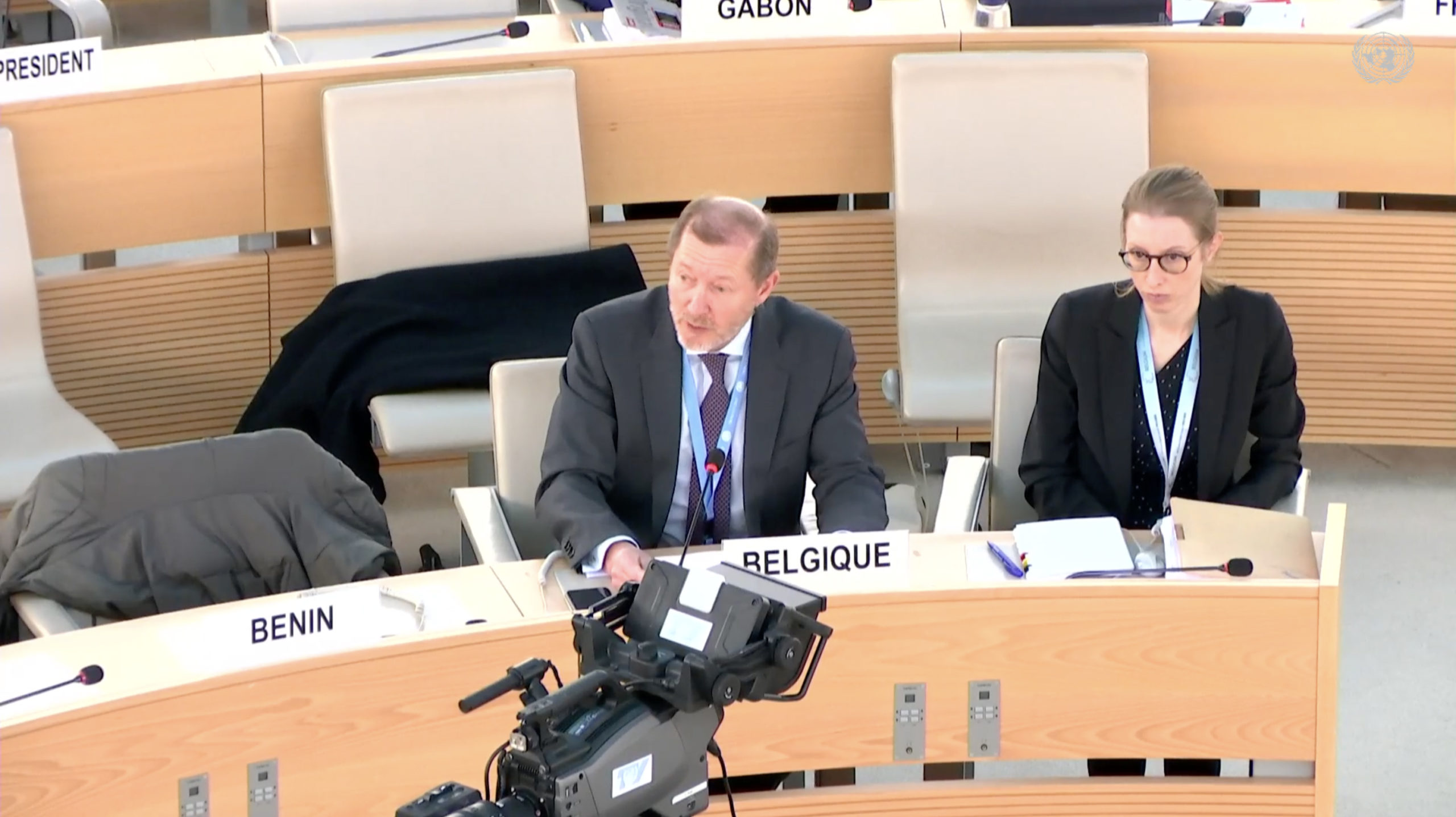
“We support the Special Rapporteur’s call for accountability with respect to the grave human rights violations and possible crimes under international law committed by Iran.”
UK

“Special Rapporteur, In light of your findings on possible crimes against humanity, how can the international community unite to ensure perpetrators are held to account?”
Montenegro
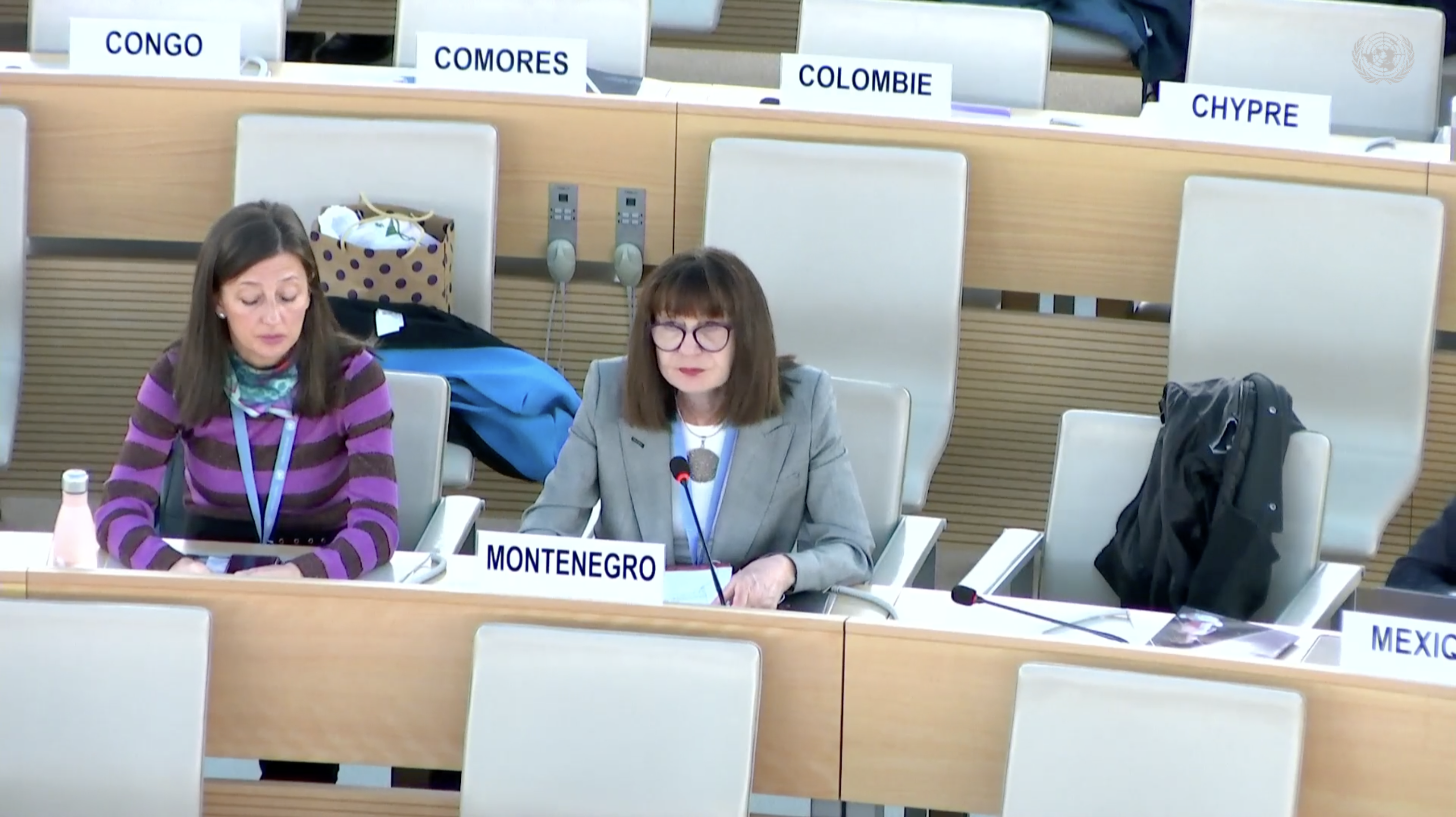
“In breach of its international obligations ensuring the rights to life, liberty and security of person, the authorities have proceeded to widespread patterns of denial and cover-up of the responsibility for serious crimes under international law.”
Luxembourg

“Ma délégation est profondément préoccupée par la gravité et l’ampleur des violations des droits humains commises par les autorités iraniennes dans le contexte de la répression des manifestations qui ont suivi le meurtre de Jina Mahsa Amini, et qui selon les conclusions de votre rapport, laissent présager que des crimes contre l’humanité ont été commis.”
Argentina

“We are also alarmed that the Rapporteur concludes that “the magnitude and gravity of these violations indicate the possible commission of international crimes, in particular the crimes against humanity of murder, imprisonment, enforced disappearances, torture, rape and sexual violence, and persecution.”
The dialogue also included interventions from human rights institutions and NGOs, during which Mahsa Alimardani took the floor on behalf of coalition member Article 19:
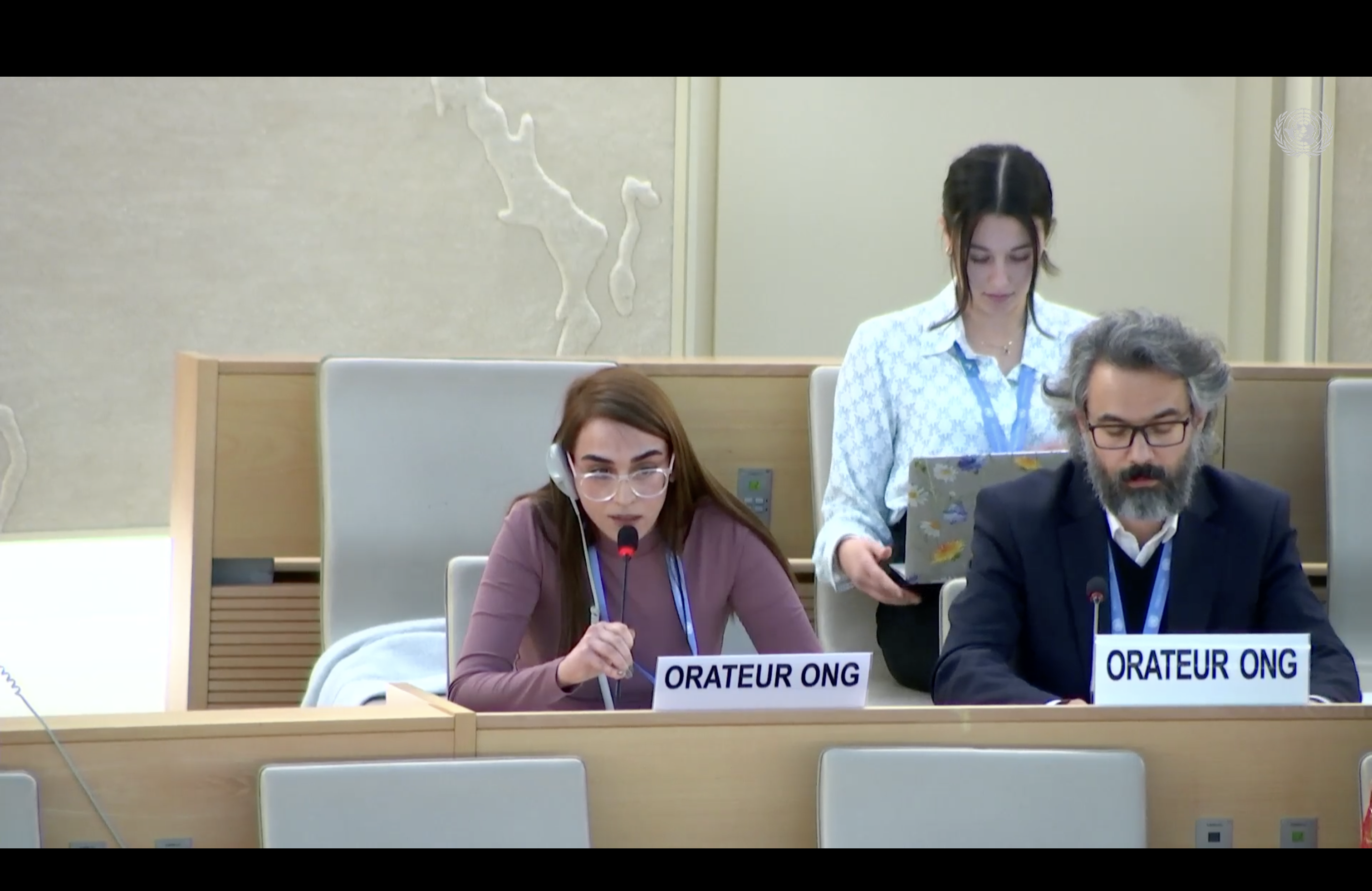
“We ask this council to stand with the people of Iran, to vote on this session’s substantive resolution, and to renew the mandate of the Special Rapporteur on Iran. The path to hope starts with justice and accountability with which this council can vote on.”
In his final remarks, the Special Rapporteur reiterated his concern for a myriad of issues including the Islamic Regime’s use of arbitrary detention, possible crimes against humanity, the death penalty, and a persistent violation of the rights of women and ethnic minorities. In response to the Islamic Regime’s criticisms of his report he stated:
“Instead of denials or rejections of reality with which they do not agree, I ask the authorities to engage with me on the substance of the report and to address my concerns and accept my recommendations […] Sanctions cannot be used as a justification to consistently violate Iran’s obligations under international human rights law, to brutalize women and enforce hijab upon them against their will and to humiliate them and violate their dignity. Similarly, sanctions are not an excuse to violently kill hundreds of men, women and children as we have seen in the recent protests. Sanctions cannot be an excuse for the executions of hundreds of persons, and a consistent persecution and violation of the rights of ethnic, linguistic and religious minorities of Iran […] In this regard I ask Iranian authorities to take complete and full responsibility for these deaths. And to fully cooperate with the FFM established by this Council and to ensure accountability and justice.”
